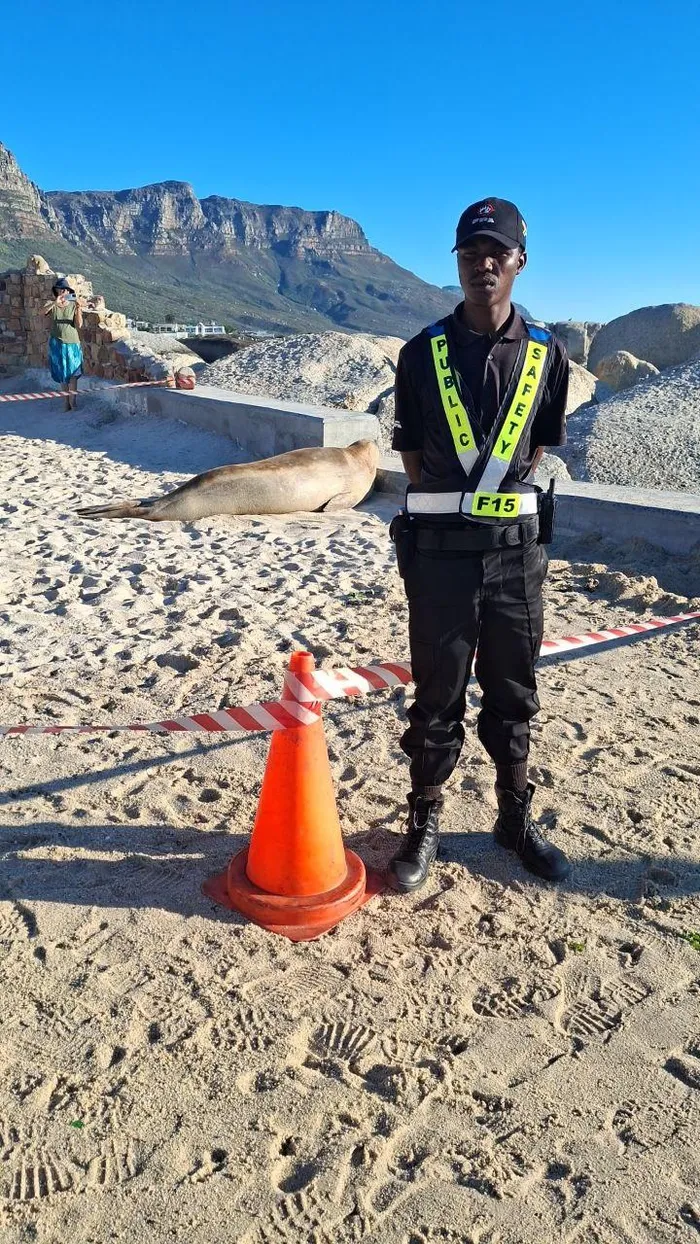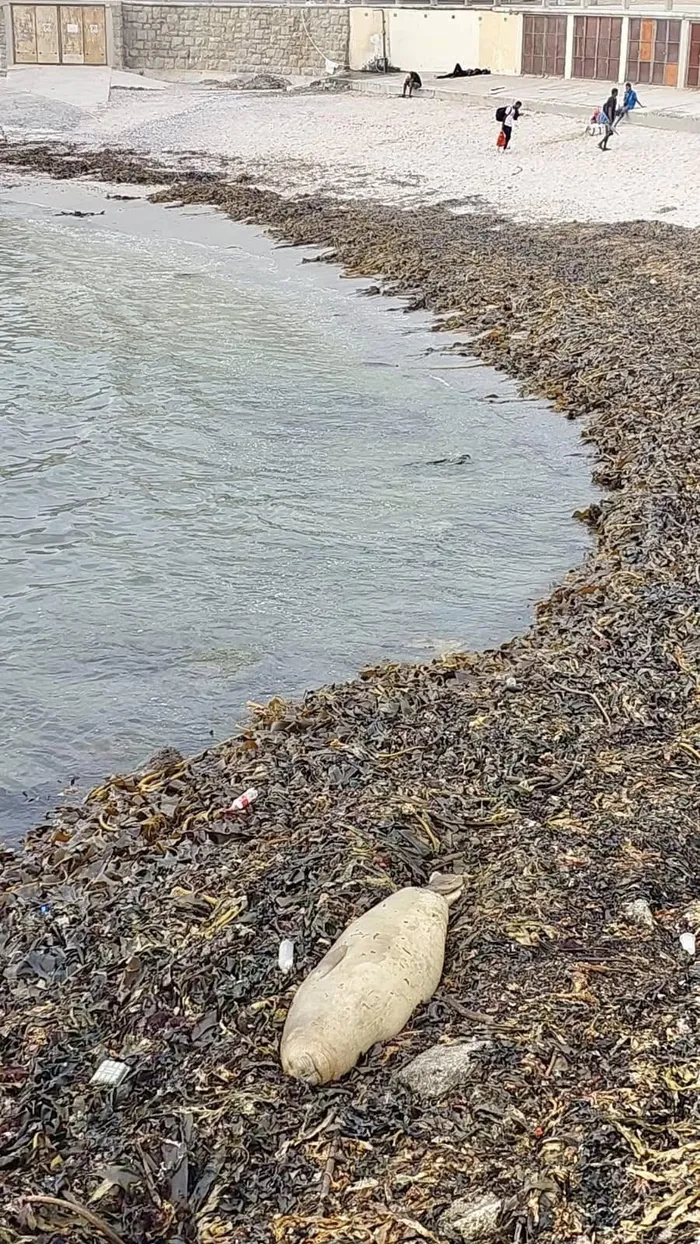How to safely admire elephant seals on Cape Town's beaches
The public are urged to give elephant seals, who haul themselves onto Cape Town's beaches, space to rest and moult.

A Camps Bay Improvement District public safety officer watches over the southern elephant seal which hauled itself onto Camps Bay Beach yesterday
Image: supplied
A small section of the tidal pool at Camps Bay beach was cordoned off yesterday, Thursday April 11, to give a visitor some privacy.
An elephant seal had made its way to the shore to relax in the sun.
Camps Bay Community Improvement District manager, Muneeb Hendricks, said the team had spotted the seal and quickly roped off a section to give the VIS – very important seal – peace and quiet.
After staying on the beach overnight, the seal swam off in the morning.
Another elephant seal was also spotted earlier that week, on Sunday April 6, at Three Anchor Bay in Sea Point, according to a post on social media.

According to a post on social media, an elephant seal has also been spotted at Three Anchor Bay in Sea Point.
Image: Facebok
According to the Two Oceans Aquarium Foundation, southern elephant seals seen at a few beaches along the Western Cape coastline are known as vagrant species, coming for some time to rest and moult.
The seals need to remain on land to fully complete the moulting process, conserving energy and relying on stored fat reserves for sustenance. Restoring the health and integrity of their skin and fur is critical to their future survival.
This is a vulnerable time for the elephant seals as they completely shed their outermost layer of skin and fur.
Over the past few months, individual Southern elephant seals have been spotted hauling up on Cape Town beaches, and the Two Oceans Aquarium Foundation and City of Cape Town’s wildlife management teams say they have been hard at work monitoring these visitors.
As the largest of the world’s seal species, Southern elephant seals are giants of the seal world. Males can grow to nearly seven metres and weigh as much as five tonnes.
According to The Two Oceans Aquarium Foundation, southern elephant seals have a wide distribution in the Southern Ocean, with most breeding and resting sites located on the Subantarctic and Antarctic islands. The closest colony of elephant seals lives about 2 177km away from Cape Town, on South Africa’s Marion Island.
These seals spend most of their time at sea, only hauling themselves onto land during breeding, moulting, and winter periods.
“We are so lucky to have these amazing creatures visit our shoreline, and we appeal to all members of the public to please leave them alone, respect their space, and view them from a distance," said Gregg Oelofse, coastal and environmental manager for City of Cape Town.
"They don’t need help, food, or water – the best we can do for them is give them peace and space."
Martine Viljoen, marine wildlife manager at the Two Oceans Aquarium Foundation said: “Let’s ensure our recent visitors can rest and moult in peace before returning to their ocean home undisturbed.
“The Two Oceans Aquarium, together with the City of Cape Town, love having the opportunity to raise awareness about their presence along our shores and, hopefully, this guides more informed public action."
What to do when you come across a seal on the beach:
- Respect their space: Always stay at least 20 metres away
- Respect cordoned-off areas by remaining behind any barriers set in place
- Do not pour water over the elephant seal as this causes unnecessary additional stress
- Minimise any noise and movement around the elephant seal
- Please keep all dogs on leashes to prevent any unexpected interactions between animals.
If members of the public see anyone (or their dog) harassing, harming, or interfering with an elephant seal, we urge them to alert the City of Cape Town on 021 480 77 00 or 083 940 8143.